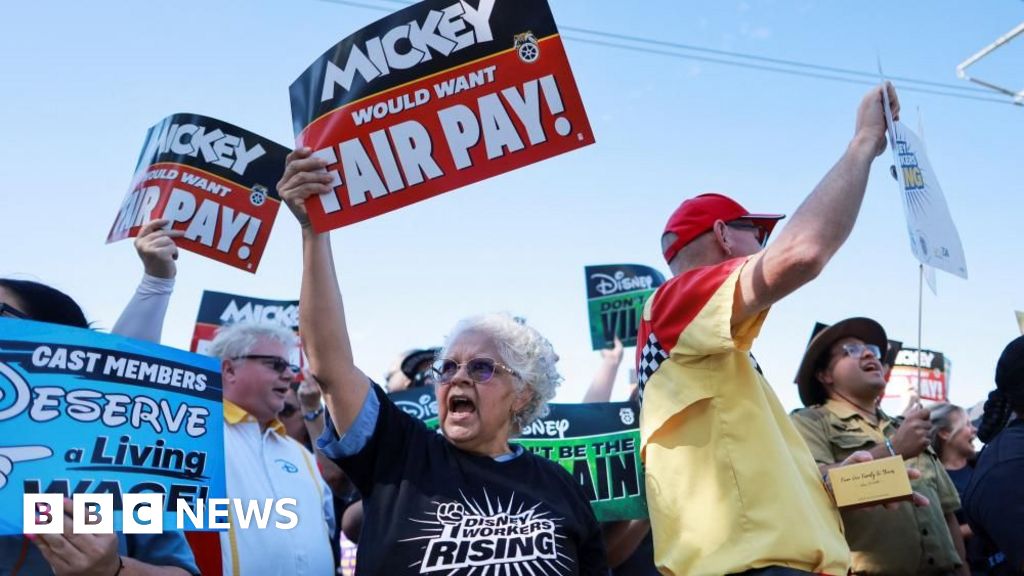- cross-posted to:
- usnews@beehaw.org
- workreform@lemmy.world
- cross-posted to:
- usnews@beehaw.org
- workreform@lemmy.world
Cynthia “Cyn” Carranza meticulously scavenged for a shady parking spot in the car she called home.
The overnight custodian at Disneyland has to sleep during the day - a difficulty for anyone, let alone when you’re living in your car with two dogs. Ms Carranza says she makes $20.65 an hour (about £15.99) at the park but last summer, she couldn’t afford rent in this Southern California city where the average apartment can run more than $2,000 (about £1,550) a month.
…
Ms Carranza, like others who work at the park, detailed to the BBC the financial hardships that come with working at what’s supposed to be the “Happiest Place on Earth”. About 10,000 union workers at Disneyland - the first of 12 parks created around the globe - are threatening to strike over the wages and what they say are retaliatory anti-union practices.
Hundreds of workers protested outside the park this week, with an array of signs and pins showing Mickey Mouse’s gloved fist in defiance.
“Mickey would want fair pay,” workers chanted outside Disneyland near the park’s gates.
They voted almost unanimously to authorise strike action on Friday, just days before union contract negotiations for workers are set to resume.



So you’re saying the entire country has been diminished into a company town? I guess this tracks considering the legalized bribery our corporate oligarchs leverage to control politicians and regulators.
They’re certainly working on it.
The one thing we still have going for us today vs in the past is that debts used to be inheritable. So if/when a Company worker died (and they often did, as most Company Towns were formed around very dangerous jobs) then their wife and children were on the hook.
That meant that if their surviving family had no job, or money to pay off the debt, the Company basically owned them at that point. And the Company could even sell the debt to a person who could pay it—and that got the payee a slave.
(Yes, technically, the person who bought the debt had to pay their newly acquired person a wage, so that person could pay them back to earn their freedom. But as there were no laws as to what wage to set, all they had to do was pay their new indentured servant such a pittance and charge them such high fees for room & board that they would be stuck working for their new owner forever—and even pass the debt on to their heirs, if they ever had any.)
Or, the family could simply be sent to debtor’s prison to rot.
I expect to see these old laws make a comeback at some point, especially if they get Project 2025 rolling.